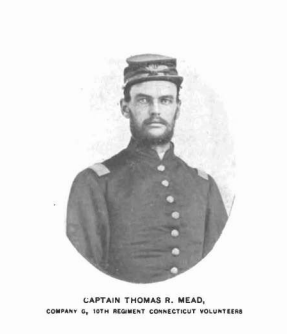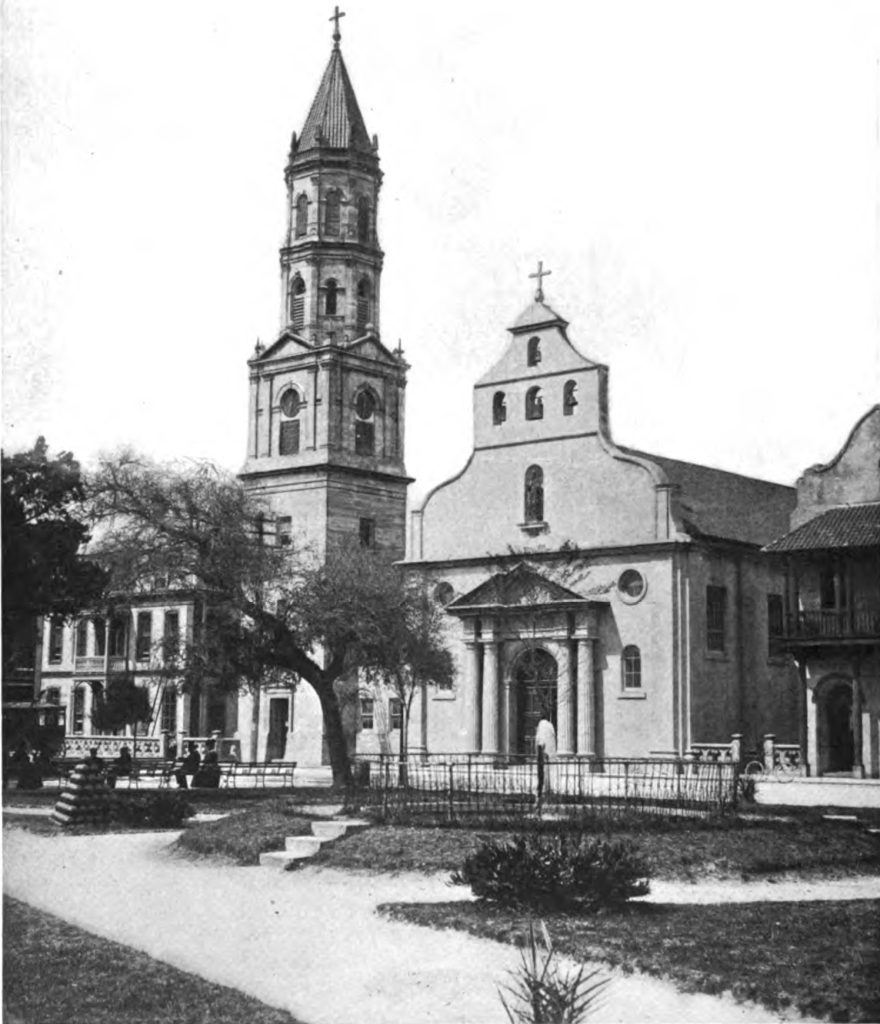Research Arsenal Spotlight 22: William Lewis Savage of the 10th Connecticut Infantry
William Lewis Savage was born in 1842 to Selah Savage and Sarah M. (Meade) Savage of Greenwich, Connecticut. On October 2, 1861 he enlisted as a sergeant in Company “I” of the 10th Connecticut Infantry for three years service.
William Lewis Savage was a religious man and often wrote of the various church services he attended during his service. The Research Arsenal collection contains eight letters written by William Lewis Savage while he was in the 10th Connecticut Infantry, spanning from November, 1861 until February, 1864.
The New Captain of Company “I”, 10th Connecticut Infantry

In late 1861, Sergeant William Lewis Savage wrote his first letter in our collection. Dated November 12 and written in Annapolis, Maryland, he told his parents about a young man that had recently been discharged from the regiment due to a wound received:
“There is one man in the regiment who has got an honorable discharge, half pay as long as his life continues in him, and one hundred dollars bounty, on his from Hartford to Annapolis. He got [a] bayonet wound which will probably cripple him for life. He is to be sent home tomorrow.”
Many more shakeups occurred in the 10th Connecticut Infantry in the following months. William Lewis Savage was promoted to sergeant major of the regiment on February 18, 1862. In the summer of 1862, the original captain of Company “I,” Daniel M. Meade, was promoted to major, leaving a new vacancy for the role of captain. William Lewis Savage had an ideal candidate in mind, though the man was not the first lieutenant of Company “I”:
“I don’t know who we shall have for our next captain but most of the company know who they want and would pretty generally unite on the same one. We all know who made Co. I what it is today—who taught us, in our first attempts, at being soldiers—could explain all the drill and make it plain to be understood—who commanded the attention of the men without reproving—could and [did] make it interesting—a [man] who today is as able and brave and well liked as the Tenth Regiment affords—who I think I may safely say understands the evolutions of the line (i.e. maneuvers of a regiment in the field, in line of battle, any other maneuvers) better than most of the Captains and all the Lieutenants. Then why shouldn’t we know who we want for our next Captain, and all be agreed. I believe he is liked by every private in the regiment. I never heard one say anything against him nor ever heard of his treating the lowest man as though he considered himself any better than him; but I have often heard men of different companies speak of him as the man they wanted to be on guard with and Lieutenant [Thomas R.] Mead’s the man for me. And what you [ask is] the reason of all this? It is because he has studied to fit himself to his duties in the position he held and afterwards for any position to where he might attain. It has also been his study to gain love and respect at the same time for the entire control of those under his command. And he has succeeded admirably—not only of those under him immediately, but of the whole regiment. And now do you wonder why the boys are all united. I think not after all the reasons I have given.”
After his strong endorsement of then second lieutenant Thomas R. Mead, William Lewis Savage went on to list his reasons why he believed the current first lieutenant of the company was the wrong man for the job:
“Again you might ask, what objections to Lieutenant [Isaac Odle] Close, at present our First Lieutenant, and the commander. We have already seen enough to know that he knows little or nothing about battalion movements, and I’ll say nothing about simple company drill. I do not doubt but there [are] privates in the company who would do as well as he with one quarter the experience. I don’t think he has ever taken a great amount of pains to inform himself any more than was absolutely necessary. I might multiply. I might fill a sheet with good and strong objections to Lieutenant Close as Captain but I don’t want to say against him to his injury so I forbear. But Lieutenant [Close] is kind to his men and I know does as well as he knows how; but that don’t help the matter much. He always used me well enough.”
William Lewis Savage’s beliefs proved to be common amongst the regiment, and it was indeed Lieutenant Thomas R. Mead who was appointed as the new captain of company “I.” Sadly, Thomas Mead died shortly after taking command, passing away on October 25, 1862.
William Lewis Savage Writes on Connecticut
On March 24, 1863, William Lewis Savage’s letter home to his parents included some of his thoughts about the current political climate in his hometown of Greenwich which he believed was shameful in not lending more to the war effort. He wrote:
“I would just like to see Co. I let loose in the town of Greenwich. I’ll vouch for the company that those secesh would have just the most wide awake time they ever saw—such a one as they would not want to see again. Why the company is indignant at some of the speeches that they have made in Connecticut. Greenwich will not furnish any more of her sons for the war? O! send that rascal down here. Summary justice will be done him. We’ll learn them what we are fighting for—to crush traitors from our land. Surely the Tenth Regiment must go where there is fighting to be done. They will get so by and bye. They can’t do anything without them. We we embark again, we go on board the N. England General Ferry’s boat.”
On September 2, 1863, William Lewis Savage was commissioned as a second lieutenant in the 10th Connecticut Infantry. A few weeks later, on September 23, 1863, he wrote home advising against a family friend, Dr. Hyde, from joining the military, as soldiering in the south was much less hospitable as doing the same in Connecticut:
“As for Dr. Hyde, it seems to me (of course I don’t know) he had better let military alone. Soldiering is very nice in Connecticut, but away from there, it is much like, well I don’t know [what] to compare it to. He can not tend to both, and my advice is to stand to his profession and we will tend to the rebs, north & south. I should like to have seen them out on picket duty. Why it must have been fun but sort of boys play. No fear of rebs getting up and shooting at you. I would not mind doing military duty in Connecticut for five times three years. It’s nothing—nothing to hurt or make afraid. Please tell him for me that I have got enough of it to last me and I guess him too for several years.”
William Lewis Savage Attends Church in Florida

In November, 1863, the 10th Connecticut Infantry was stationed in St. Augustine, Florida. As a religious man, William Lewis Savage, attended religious services whenever he could. On November 1, 1863, he wrote a letter home and described his first time attending a Catholic service in the area:
“This evening the Major sent me down to the wharf to look after a desk. After I had found it, I sent it to camp and, as it was about church time, I went into the church. The church is very old and is a Catholic church. The congregation was composed mostly of citizens—quite a good many of them ladies—very fine looking and nicely dressed they were too. Reminded me very much of home.
The service mostly was unintelligible. What was not in Latin was in such broken English I could not understand it. The priest was an Irishman. Most of the congregation, I should judge, were Spanish. The music was fine—an organ and two or three female voices did all the singing—and splendid singing it was too. There is a chime of bells in the church.”
The church that William Lewis Savage visited was the Cathedral Basilica of St. Augustine, which was built between 1793 and 1797 and still stands in St. Augustine today.
Lieutenant William Lewis Savage mustered out at the end of his term on October 18, 1864. He died on October 27, 1909 in Bridgeport, Connecticut leaving behind three children.
We’d like to thank William Griffing of Spared & Shared for his work in transcribing and sharing these letters.
To read more letters by William Lewis Savage and access thousands of Civil War era letters and documents, sign up for a Research Arsenal membership.
If you enjoyed this spotlight article, check out some of our other featured collections like Richard Ransom of the Chicago Mercantile Battery and Biddle Boggs who served on John C. Frémont’s staff and in the 80th USCT Infantry.

